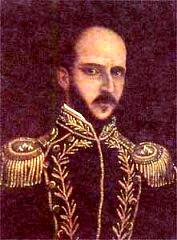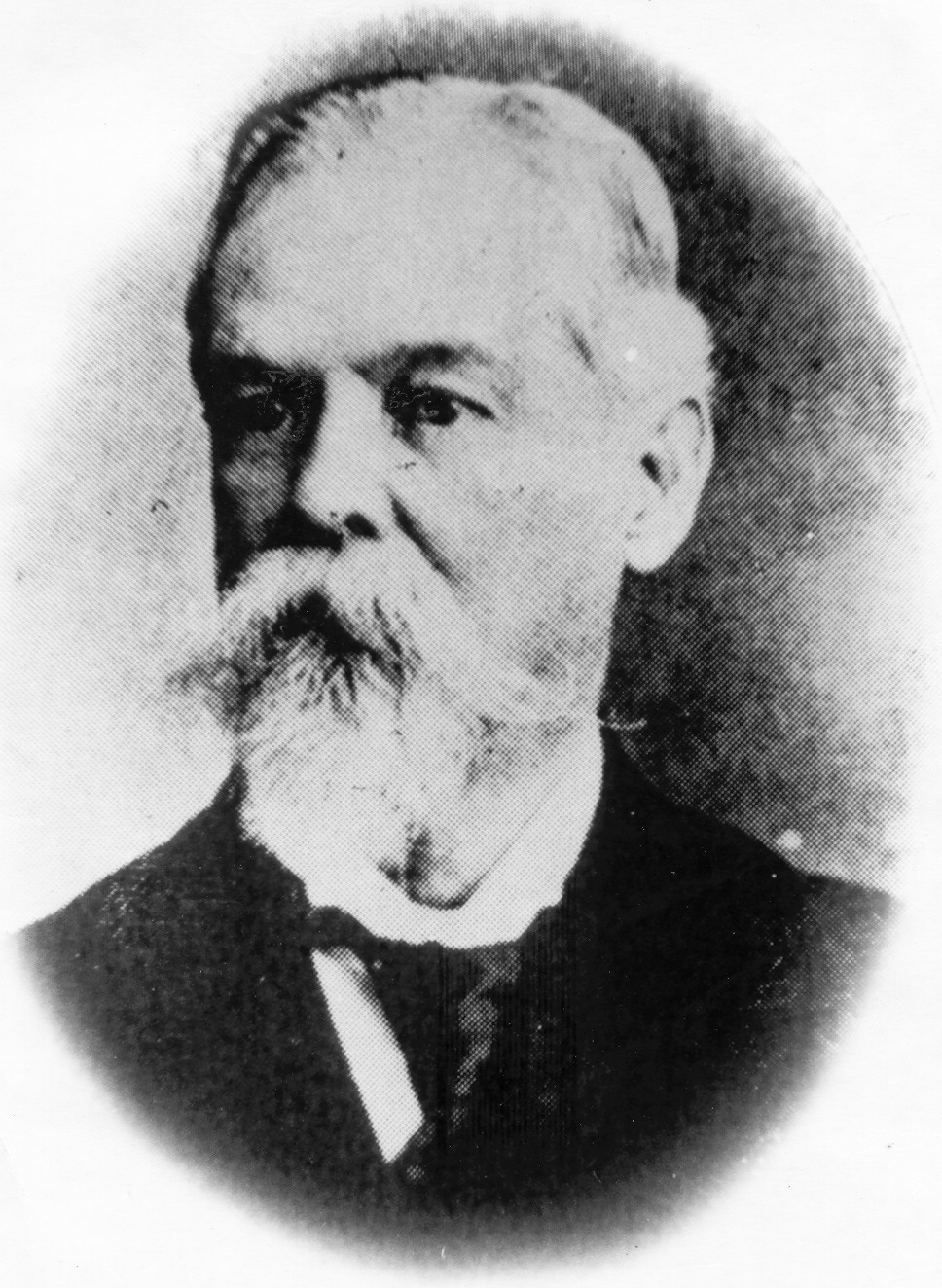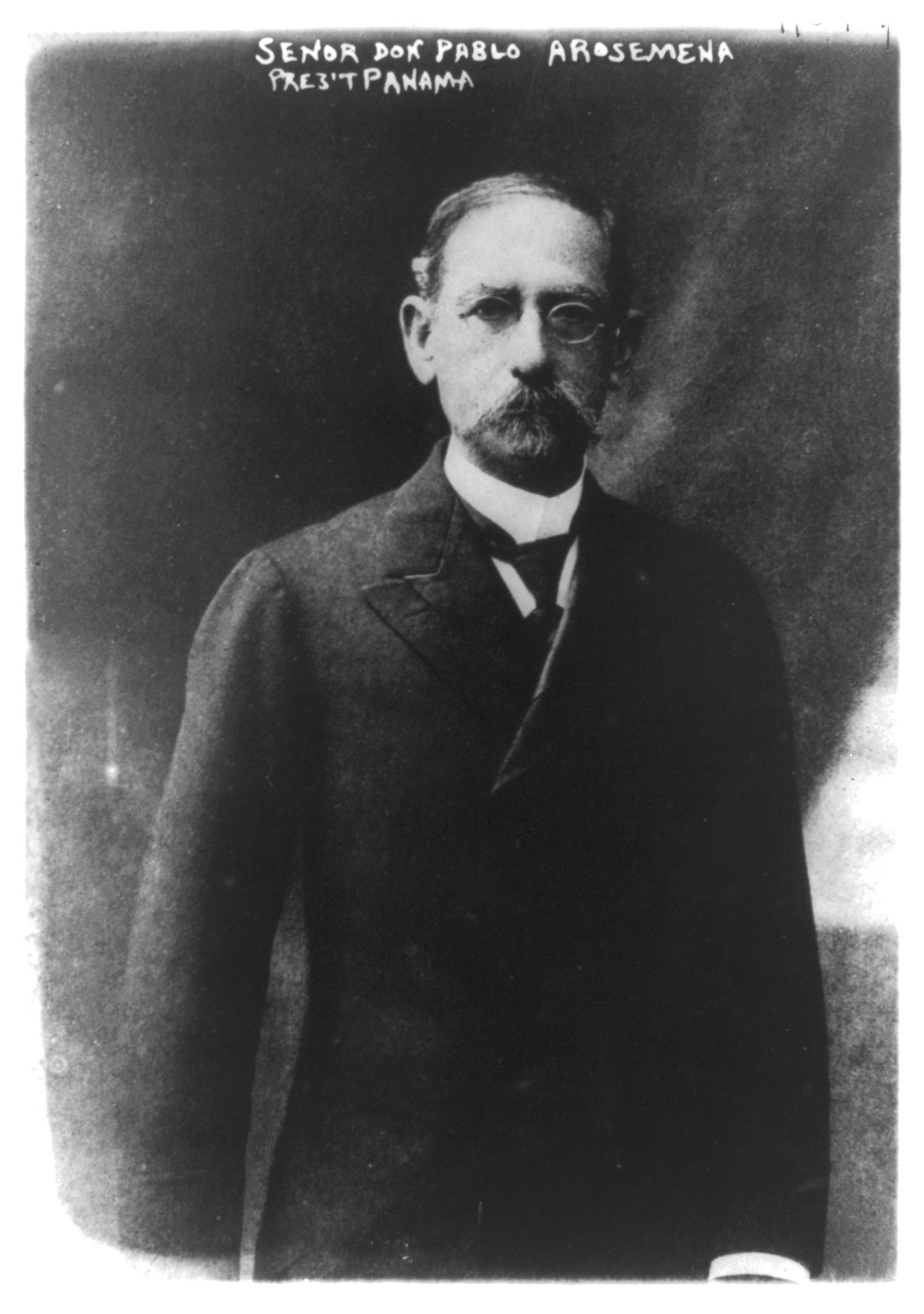|
Carlos Antonio Mendoza
Carlos Antonio Mendoza Soto (31 October 1856, in Panama City – 13 February 1916) was Panamanian politician who served since 1908 as the second presidential designate in the government of José Domingo de Obaldía and since the death of the first presidential designate José Agustín Arango in 1909 he was first in line to the presidency. In that capacity Mendoza became President of Panama from 1 March 1910 to 1 October 1910. He belonged to the Liberal Party. He was elected as the third presidential designate by the National Assembly In politics, a national assembly is either a unicameral legislature, the lower house of a bicameral legislature, or both houses of a bicameral legislature together. In the English language it generally means "an assembly composed of the rep ... for the term 1904–1906. References • Mellander, Gustavo A., Mellander, Nelly, Charles Edward Magoon: The Panama Years. Río Piedras, Puerto Rico: Editorial Plaza Mayor. ISBN 1-56328-155-4. ... [...More Info...] [...Related Items...] OR: [Wikipedia] [Google] [Baidu] |
President Of Panama
This article lists the heads of state of Panama since the short-lived first independence from the Republic of New Granada in 1840 and the final separation from Colombia in 1903. Free State of the Isthmus (1840–1841) Republic of Panama (1903–present) President of the Municipal Council of Panama and ''de facto'' President (1903) Members of the Provisional Government Junta (1903–1904) Presidents of Panama (1904–present) Military leaders of Panama (1968–1989) From 1968 to 1989 a military junta exerted actual control over the country and nominated the president, who himself held little power. The following individuals were leaders of the junta. Latest election Living former presidents As of , there are nine living former Panamanian presidents: See also * Politics of Panama * List of political parties in Panama This article lists political parties in Panama. Panama has a multi-party system. Although there are three major political parties, no one p ... [...More Info...] [...Related Items...] OR: [Wikipedia] [Google] [Baidu] |
National Liberal Party (Panama)
The National Liberal Party ( es, Partido Liberal Nacional) was a liberal party in Panama. The party was an observer at Liberal International. The party was formed in 1903 out of the Panamanian branch of the Colombian Liberal Party, shortly after Panama declared independence. The PNL merged with Solidarity Party (Partido Solidaridad) to form the new Patriotic Union Party (Unión Patriótica) in 2009. See also *Liberalism worldwide *List of liberal parties *Liberalism in Panama This article gives an overview of liberalism in Panama. It is limited to liberal parties with substantial support, mainly proved by having had a representation in parliament. The sign ⇒ means a reference to another party in that scheme. For inclu ... References Defunct political parties in Panama Liberal parties in Panama 1903 establishments in Panama Political parties disestablished in 2009 Political parties established in 1903 {{liberalparty-stub ... [...More Info...] [...Related Items...] OR: [Wikipedia] [Google] [Baidu] |
National Liberal Party (Panama) Politicians
National Liberal Party may refer to: Active parties * National Liberal Party (El Salvador) * National Liberal Party (Lebanon) * National Liberal Party (Moldova) * National Liberal Party (Romania) * National Liberal Party (UK, 1999) Defunct parties * National Liberal Party (Australia) * National Liberal Party (Bermuda) * National Liberal Party (Bulgaria) * National Liberal Party (Denmark) * National Liberal Party (Estonia) * National Liberal Party (Germany), 1867–1918 * National Liberal Party (Hawaii) * National Liberal Party (Hungary) * National Liberal Party (Kingdom of Bohemia), known as Young Czech Party, 1874–1918 * National Liberal Party (Romania, 1875), a dissolved party in Romania * National Liberal Party-Brătianu, Romania, 1930–1938 * National Liberal Party–Tătărescu, Romania, 1944–1950 * National Liberal Party (UK, 1922), 1922–1923, led by David Lloyd George, merged with UK Liberal Party * National Liberal Party (UK, 1931), 1931–1968, merged w ... [...More Info...] [...Related Items...] OR: [Wikipedia] [Google] [Baidu] |
Panamanian People Of Spanish Descent
Panamanians (Spanish: ''Panameños'') are people identified with Panama, a transcontinental country in Central America (a region within North America) and South America, whose connection may be residential, legal, historical, or cultural. For most Panamanians, several or all of these connections exist and are collectively the source of their Panamanian identity. Panama is a multilingual and multicultural society, home to people of many different ethnicities and religions. Therefore, many Panamanians do not equate their nationality with ethnicity, but with citizenship and allegiance to Panama. The overwhelming majority of Panamanians are the product of varying degrees of admixture between European ethnic groups (predominantly Spaniards) with native Amerindians who are indigenous to Panama's modern territory. The culture held in common by most Panamanians is referred to as mainstream Panamanian culture, a culture largely derived from the traditions of the Indigenous people and th ... [...More Info...] [...Related Items...] OR: [Wikipedia] [Google] [Baidu] |
People From Panama City
A person ( : people) is a being that has certain capacities or attributes such as reason, morality, consciousness or self-consciousness, and being a part of a culturally established form of social relations such as kinship, ownership of property, or legal responsibility. The defining features of personhood and, consequently, what makes a person count as a person, differ widely among cultures and contexts. In addition to the question of personhood, of what makes a being count as a person to begin with, there are further questions about personal identity and self: both about what makes any particular person that particular person instead of another, and about what makes a person at one time the same person as they were or will be at another time despite any intervening changes. The plural form "people" is often used to refer to an entire nation or ethnic group (as in "a people"), and this was the original meaning of the word; it subsequently acquired its use as a plural form of per ... [...More Info...] [...Related Items...] OR: [Wikipedia] [Google] [Baidu] |
1916 Deaths
Events Below, the events of the First World War have the "WWI" prefix. January * January 1 – The British Royal Army Medical Corps carries out the first successful blood transfusion, using blood that had been stored and cooled. * January 9 – WWI: Gallipoli Campaign: The last British troops are evacuated from Gallipoli, as the Ottoman Empire prevails over a joint British and French operation to capture Constantinople. * January 10 – WWI: Erzurum Offensive: Russia defeats the Ottoman Empire. * January 12 – The Gilbert and Ellice Islands Colony, part of the British Empire, is established in present-day Tuvalu and Kiribati. * January 13 – WWI: Battle of Wadi: Ottoman Empire forces defeat the British, during the Mesopotamian campaign in modern-day Iraq. * January 29 – WWI: Paris is bombed by German zeppelins. * January 31 – WWI: An attack is planned on Verdun, France. February * February 9 – 6.00 p.m. – Tristan Tz ... [...More Info...] [...Related Items...] OR: [Wikipedia] [Google] [Baidu] |
1856 Births
Events January–March * January 8 – Borax deposits are discovered in large quantities by John Veatch in California. * January 23 – American paddle steamer SS ''Pacific'' leaves Liverpool (England) for a transatlantic voyage on which she will be lost with all 186 on board. * January 24 – U.S. President Franklin Pierce declares the new Free-State Topeka government in "Bleeding Kansas" to be in rebellion. * January 26 – First Battle of Seattle: Marines from the suppress an indigenous uprising, in response to Governor Stevens' declaration of a "war of extermination" on Native communities. * January 29 ** The 223-mile North Carolina Railroad is completed from Goldsboro through Raleigh and Salisbury to Charlotte. ** Queen Victoria institutes the Victoria Cross as a British military decoration. * February ** The Tintic War breaks out in Utah. ** The National Dress Reform Association is founded in the United States to promote "rational" dress for ... [...More Info...] [...Related Items...] OR: [Wikipedia] [Google] [Baidu] |
List Of Presidents Of Panama
This article lists the heads of state of Panama since the short-lived first independence from the Republic of New Granada in 1840 and the final separation from Colombia in 1903. Free State of the Isthmus (1840–1841) Republic of Panama (1903–present) President of the Municipal Council of Panama and ''de facto'' President (1903) Members of the Provisional Government Junta (1903–1904) Presidents of Panama (1904–present) Military leaders of Panama (1968–1989) From 1968 to 1989 a military junta exerted actual control over the country and nominated the president, who himself held little power. The following individuals were leaders of the junta. Latest election Living former presidents As of , there are nine living former Panamanian presidents: See also * Politics of Panama * List of political parties in Panama This article lists political parties in Panama. Panama has a multi-party system. Although there are three major political parties, no one p ... [...More Info...] [...Related Items...] OR: [Wikipedia] [Google] [Baidu] |
National Assembly Of Panama
The National Assembly of Panama ( es, Asamblea Nacional de Panamá), formerly the Legislative Assembly of Panama ''(Asamblea Legislativa de Panamá)'', is the legislative branch of the government of the Republic of Panama. It is a unicameral legislature, currently made up of 71 members, who serve five-year terms. Legislators from outlying rural districts are chosen by a first past the post method, while districts located in more populous towns and cities elect multiple legislators by means of a proportion-based formula. Panama's legislative elections are held simultaneous with its presidential and local elections. Panama also returns a delegation of 20 deputies to the supranational Central American Parliament. Latest election See also * List of political parties in Panama * List of presidents of the National Assembly of Panama * Politics of Panama External links * References {{Authority control Panama Politics of Panama Government of Panama Panama ... [...More Info...] [...Related Items...] OR: [Wikipedia] [Google] [Baidu] |
José Agustín Arango
José Agustín Arango Remón (February 24, 1841 - May 10, 1909) was a Panamanian politician who was, together with Tomás Arias and Federico Boyd, a member of the provisional junta that governed Panama after its independence in 1903. He was the Chairman of the Provisional Government Junta from 4 November 1903 until 20 February 1904. He was elected as the first presidential designate by the National Assembly In politics, a national assembly is either a unicameral legislature, the lower house of a bicameral legislature, or both houses of a bicameral legislature together. In the English language it generally means "an assembly composed of the repre ... for the term 1908–1910, but he died before completing his term. References • Mellander, Gustavo A., Mellander, Nelly, Charles Edward Magoon: The Panama Years. Río Piedras, Puerto Rico: Editorial Plaza Mayor. ISBN 1-56328-155-4. OCLC 42970390. (1999) • Mellander, Gustavo A., The United States in Panamanian Politics ... [...More Info...] [...Related Items...] OR: [Wikipedia] [Google] [Baidu] |
Vice President Of Panama
The vice president of Panama is the second-highest political position in the Government of Panama. Since 2009, the position of Vice President has been held by only one person. Before 1945 there were positions of presidential designates elected by the National Assembly for a two-year term.https://www.constitucion.gob.pa/tmp/file/53/La-reeleccion-del-presidente-de-la-republica-en-panama-RPP-12.pdf The positions of presidential designates were replaced in 1945 by two vice presidents. According to the current constitution, Vice President is elected in the same ticket as the President of Panama. Presidential designates 1904-1945 Before the 1946 constitution was adopted, there were positions of three presidential designates: first designate (''Primer Designado a la Presidencia''), second designate (''Segundo Designado a la Presidencia'') and third designate (''Tercer Designado a la Presidencia''). Vice presidents (1945-2009) The 1946 constitution introduced two vice presidents ... [...More Info...] [...Related Items...] OR: [Wikipedia] [Google] [Baidu] |
Panamanian
Panamanians (Spanish: ''Panameños'') are people identified with Panama, a transcontinental country in Central America (a region within North America) and South America, whose connection may be residential, legal, historical, or cultural. For most Panamanians, several or all of these connections exist and are collectively the source of their Panamanian identity. Panama is a multilingual and multicultural society, home to people of many different ethnicities and religions. Therefore, many Panamanians do not equate their nationality with ethnicity, but with citizenship and allegiance to Panama. The overwhelming majority of Panamanians are the product of varying degrees of admixture between European ethnic groups (predominantly Spaniards) with native Amerindians who are indigenous to Panama's modern territory. The culture held in common by most Panamanians is referred to as mainstream Panamanian culture, a culture largely derived from the traditions of the Indigenous people and the ... [...More Info...] [...Related Items...] OR: [Wikipedia] [Google] [Baidu] |

_1938.jpg)





